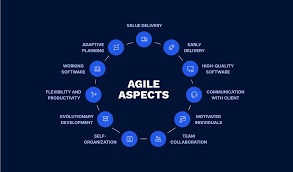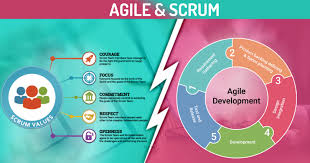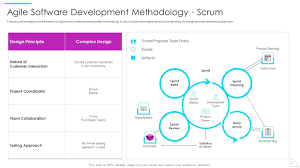The Essential Role of a Software Engineer in Modern Technology
The Role of a Software Engineer
A software engineer is a professional who applies engineering principles to design, develop, maintain, test, and evaluate computer software. They are responsible for creating efficient and functional software solutions to meet specific user needs.
Key Responsibilities:
- Designing: Software engineers design software applications by analyzing user requirements and determining the best approach to meet those needs.
- Development: They write code using programming languages such as Java, C++, Python, or others to implement the software design.
- Testing: Software engineers test the developed software to identify and fix any bugs or issues before deployment.
- Maintenance: They are involved in maintaining and updating existing software systems to ensure they remain functional and up-to-date.
- Collaboration: Software engineers often work in teams with other professionals such as designers, product managers, and quality assurance testers to deliver high-quality software products.
- Problem-solving: They troubleshoot technical issues and find innovative solutions to complex problems that may arise during the development process.
Skills Required:
To excel as a software engineer, individuals need a combination of technical skills, problem-solving abilities, and soft skills such as teamwork and communication. Some essential skills include proficiency in programming languages, knowledge of algorithms and data structures, understanding of software development methodologies, and attention to detail.
Career Outlook:
The demand for skilled software engineers continues to grow as technology plays an increasingly crucial role in various industries. Software engineers can work in diverse fields such as web development, mobile app development, cybersecurity, artificial intelligence, and more. With the right skills and experience, software engineers have excellent career prospects and opportunities for growth.
In conclusion, a software engineer plays a vital role in shaping the digital world we live in today. Their expertise is essential for developing innovative solutions that drive technological advancements across industries.
Top 7 Frequently Asked Questions About a Career in Software Engineering
- What does it take to be a software engineer?
- Do software engineers get paid well?
- What does a software engineer do?
- What a software engineer does?
- Is software engineer an IT job?
- How many years is a software engineer?
- What is required to become a software engineer?
What does it take to be a software engineer?
To become a successful software engineer, individuals need a combination of technical expertise, problem-solving skills, and a passion for continuous learning. A strong foundation in programming languages, knowledge of algorithms and data structures, and familiarity with software development methodologies are essential. Attention to detail, critical thinking abilities, and the ability to work collaboratively in a team are also key traits for aspiring software engineers. Continuous self-improvement, staying updated on industry trends, and being adaptable to new technologies are crucial for thriving in this dynamic field. Ultimately, dedication, perseverance, and a genuine interest in creating innovative software solutions are what it takes to excel as a software engineer.
Do software engineers get paid well?
The compensation for software engineers is generally competitive and often considered to be lucrative. Salaries for software engineers can vary depending on factors such as experience, location, industry, and specific skills. In many cases, software engineers are well-paid due to the high demand for their expertise in developing and maintaining software solutions. Additionally, as technology continues to evolve and play a critical role in various sectors, the value of skilled software engineers in driving innovation further contributes to their earning potential.
What does a software engineer do?
A software engineer is responsible for designing, developing, testing, and maintaining computer software to meet specific user requirements. They analyze user needs, create software design plans, write code using programming languages, test the software for bugs and issues, and ensure that the software functions efficiently. Software engineers collaborate with other team members to deliver high-quality software solutions and continuously update and improve existing systems. Their role involves problem-solving, innovation, and staying up-to-date with the latest technologies to create cutting-edge software applications across various industries.
What a software engineer does?
A software engineer is responsible for designing, developing, testing, and maintaining computer software to meet specific user requirements. They utilize their expertise in programming languages and engineering principles to create efficient and functional software solutions. Software engineers collaborate with cross-functional teams to ensure that the developed software meets quality standards and addresses user needs effectively. Their role involves problem-solving, innovation, and continuous learning to stay current with technological advancements in the field of software development.
Is software engineer an IT job?
The question of whether a software engineer is an IT job is a common one in the tech industry. While both software engineering and information technology (IT) are closely related fields within the broader realm of technology, they serve distinct purposes. Software engineers primarily focus on designing, developing, and testing software applications and systems, utilizing programming languages and engineering principles. On the other hand, IT professionals typically manage and maintain existing technology infrastructure, provide technical support, ensure data security, and oversee network operations. While there may be some overlap between the roles of software engineers and IT professionals in certain organizations, it is essential to recognize the unique skill sets and responsibilities that define each profession.
How many years is a software engineer?
One common question often asked about software engineers is, “How many years does it take to become a software engineer?” The path to becoming a software engineer can vary depending on individual circumstances and educational background. Typically, aspiring software engineers pursue a bachelor’s degree in computer science or a related field, which usually takes about four years to complete. However, the learning process does not end with formal education, as continuous learning and skill development are essential in the fast-evolving tech industry. Many software engineers continue to enhance their expertise through certifications, workshops, and practical experience throughout their careers.
What is required to become a software engineer?
To become a software engineer, individuals typically need to obtain a bachelor’s degree in computer science, software engineering, or a related field. In addition to formal education, aspiring software engineers should develop strong programming skills in languages such as Java, C++, Python, or others. Familiarity with data structures, algorithms, and software development methodologies is also essential. Continuous learning and staying updated with the latest technologies and trends in the industry are crucial for success in this field. Problem-solving abilities, attention to detail, and effective communication skills are valuable traits that can help individuals thrive as software engineers. Internships or practical experience through projects can further enhance one’s understanding and expertise in software development.












